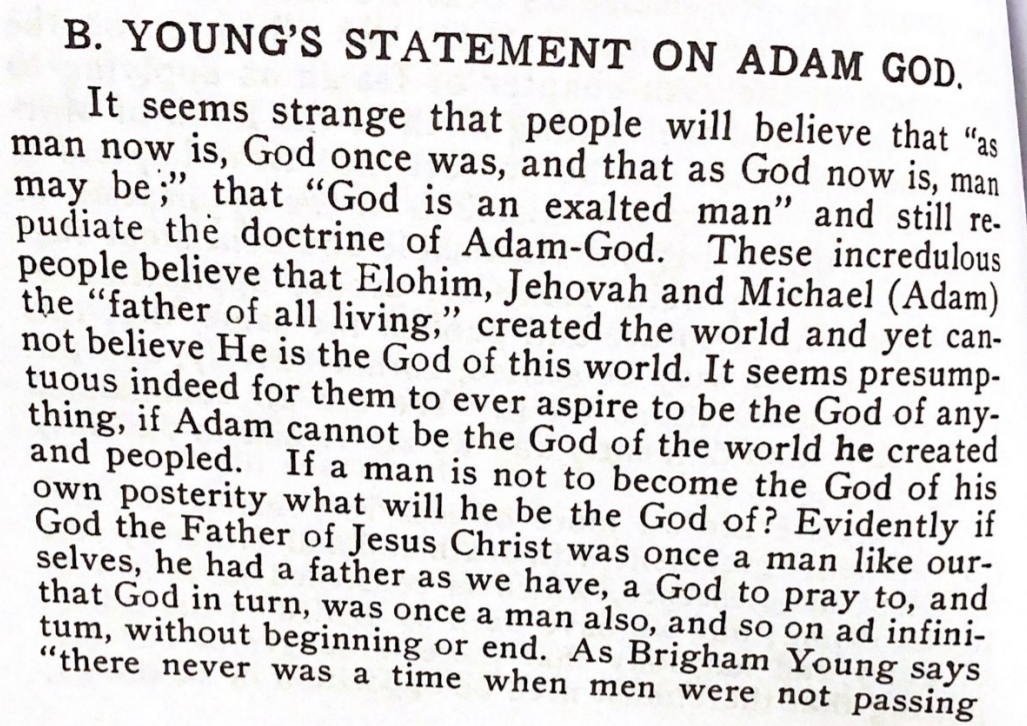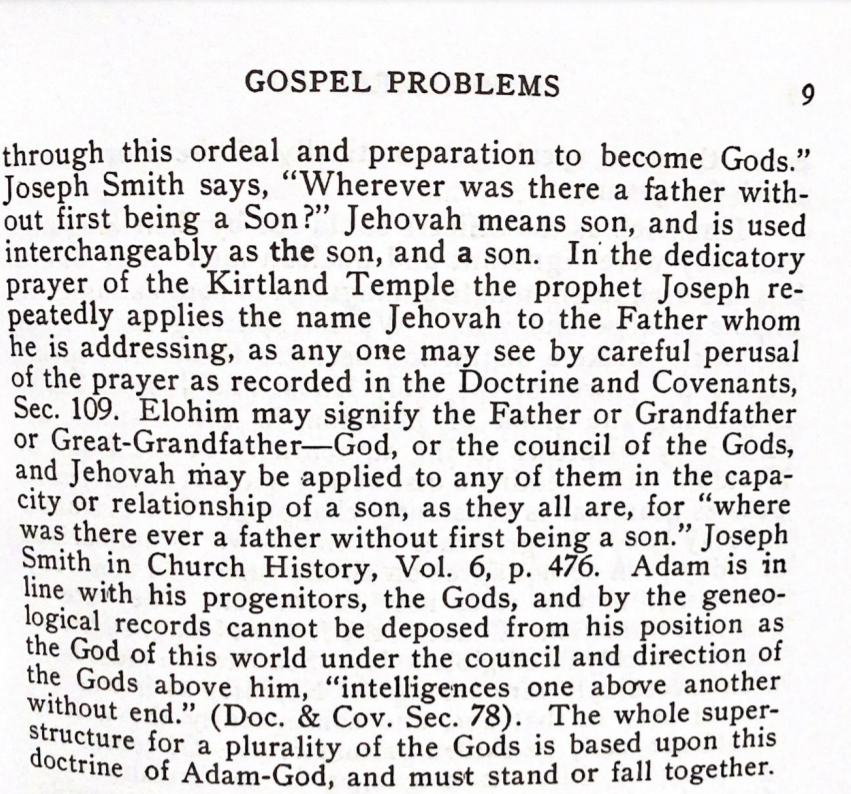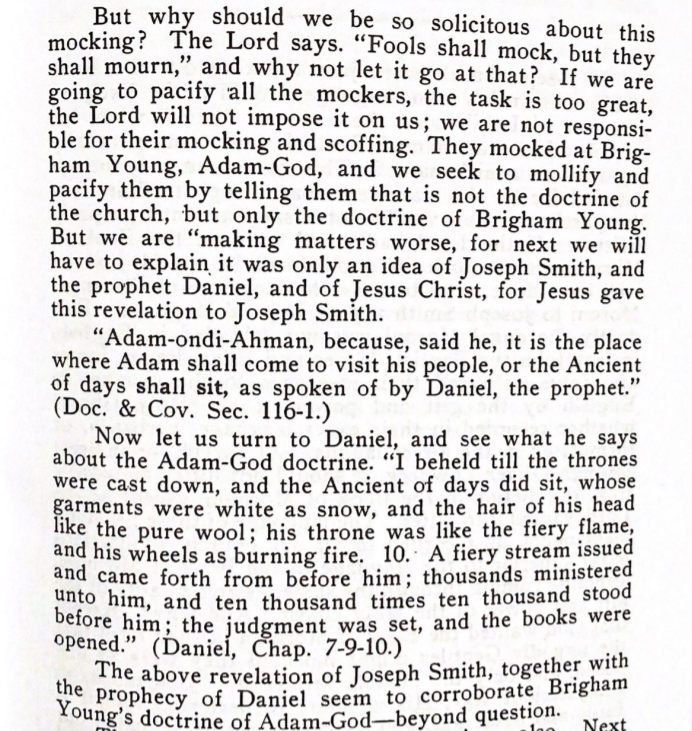Heber Bennion writes in defence of Adam-God; appeals to Daniel 7 and the Ancient of Days being God to support Brigham Young's teachings.
- Type
- Book
- Source
- Heber Bennion
- Hearsay
- Direct
- Reference
Heber Bennion, Supplement to Gospel Problems (Heber Bennion, n.d.), 8-9, 13
- Scribe/Publisher
- Heber Bennion
- Audience
- Reading Public
- Transcription
B. YOUNG’S STATEMENT ON ADAM GOD.
It seems strange that people will believe that “as man now is, God once was, and that as God now is, man may be;” that “God is an exalted man” and still repudiate the doctrine of Adam-God. These incredulous people believe that Elohim, Jehovah and Michael (Adam) is the “father of all living,” created the world and yet cannot believe He is the God of this world. It seems presumptuous indeed for them to ever aspire to be the God of anything, if Adam cannot be the God of the world he created and peopled. IF a man is not to become the God of his own posterity what will he be the God of? Evidently if God the Father of Jesus Christ was once a man like ourselves, he had a father as we have, a God to pray to, and that God in turn, was once a man also, and so on ad infinitum, without beginning or end. As Brigham says “there never was a time when men were not passing through this ordeal and preparation to become Gods.” Joseph Smith says, “Wherever was there a father without first being a Son?” Jehovah means son, and is used interchangeably as the son, and a son. In the dedicatory prayer of the Kirtland Temple the prophet Joseph repeatedly applies the name Jehovah to the Father whom he is addressing, as any one may see by careful perusal of the prayer as recorded in the Doctrine and Covenants, Sec. 109. Elohim may signify the Father or Grandfather or Great-Grandfather—God or the council of the Gods, and Jehovah may be applied to any of them in the capacity or relationship of a son, as they all are, for “where was there ever a father without first being a son.” Joseph Smith in Church History, Vol. 6, p. 476. Adam is in line with his progenitors, the Gods, and by the genealogical records cannot be deposed from his position as the God of this world under the council and direction of the Gods above him, “intelligence one above another without end.” (Doc. & Cov. Sec. 78). The whole superstructure of a plurality of the Gods is based upon this doctrine of Adam-God, and must stand or fall together.
. . .
But why should we be so solicitous about this mocking? The Lord says. “Fools shall mock, but they shall mourn,” and why not let it go at that? If we are going to pacify all the mockers, the task is too great, the Lord will not impose it on us; we are not responsible for their mocking and scoffing. They mocked at Brigham Young, Adam-God, and we seek to mollify and pacify them by telling them that is not the doctrine of the church, but only the doctrine of Brigham Young. But we are “making matters worse, for next we will have to explain it was only an idea of Joseph Smith, and the prophet Daniel, and of Jesus Christ, for Jesus gave this revelation to Joseph Smith.
“Adam-ondi-Ahman, because, said he, it is the place where Adam shall come to visit his people, or the Ancient of days shall sit, as spoken of by Daniel, the prophet.” (Doc. & Cov. Sec. 116-1.)
Now let us turn to Daniel, and see what he says about the Adam-God doctrine. “I beheld till the thrones were cast down, and the Ancient of days did sit, whose garments were white as snow, and the hair of his head like the pure wool; his throne was like the fiery flame, and his wheels as burning fire. 10. A fiery stream issued and came forth from before him; thousands ministered not him, and ten thousand times ten thousand stood before him; the judgment was set, and the books were opened.” (Daniel, Chap. 7-9-10.)
The above revelation of Joseph Smith, together with the prophecy of Daniel seems to corroborate Brigham Young’s doctrine of Adam-God—beyond question.
- Citations in Mormonr Qnas
The B. H. Roberts Foundation is not owned by, operated by, or affiliated with the Church of Jesus Christ of Latter-day Saints.



